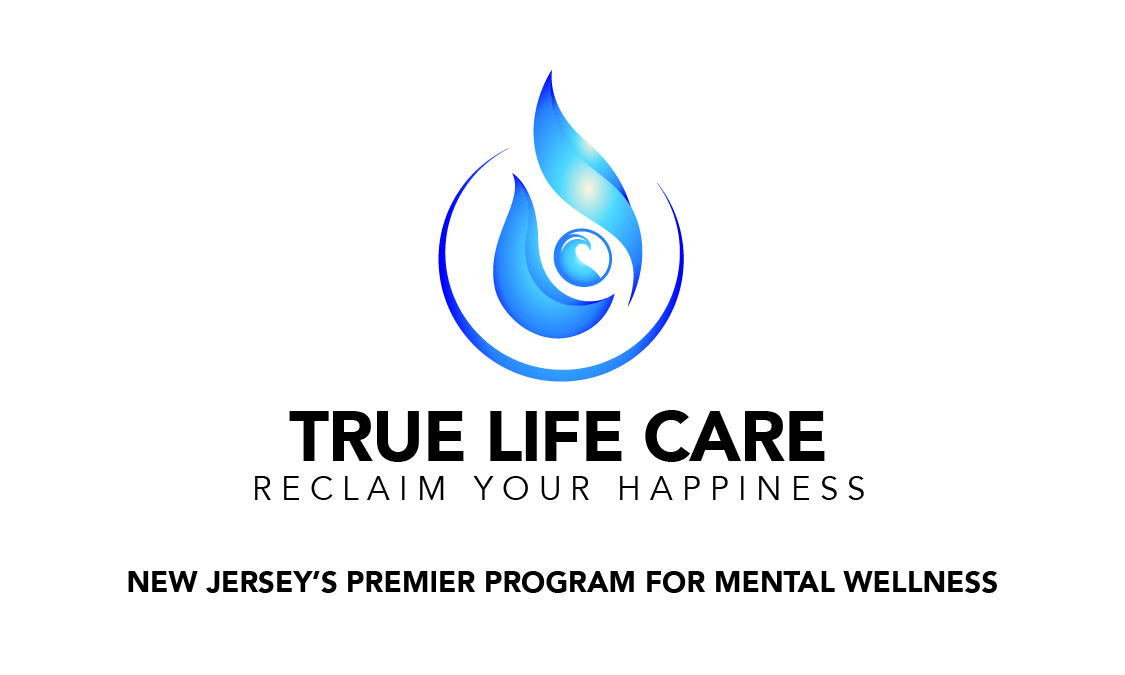Dealing with mental health challenges can be overwhelming, but when combined with substance abuse issues, it becomes even more complex. This is where dual diagnosis treatment comes into play. In Morris County, NJ, there are specialized centers that focus on providing comprehensive care for individuals facing co-occurring disorders. These centers understand that treating both mental health and substance abuse simultaneously is crucial for effective recovery.
Dual diagnosis treatment centers in Morris County, NJ, offer a range of services tailored to meet the unique needs of each patient. The treatment plans typically involve a combination of individual therapy, group counseling, medication management, and holistic approaches that address both mental health and addiction issues. The goal is to help individuals regain control over their lives by providing them with the tools and support necessary to manage their conditions effectively.
Mental Health Matters – Make it a Priority! If you or a loved one are ready to begin regaining autonomy over your health and well-being, know that we’re here for you. Let us guide you through your recovery journey and enable you to lead the happy, healthy, and fulfilling life you deserve. Contact us for Mental Health Services in New Jersey.
Understanding Dual Diagnosis Treatment

Understanding the concept of dual diagnosis treatment is essential for anyone seeking help or supporting a loved one. Dual diagnosis refers to the occurrence of both a mental health disorder and a substance use disorder in the same individual. This combination can complicate treatment as each condition can exacerbate the symptoms of the other.
The primary aim of dual diagnosis treatment is to provide an integrated approach. This means that clinicians and therapists work collaboratively to address both disorders concurrently rather than treating one condition in isolation. By doing so, they can create a more effective and holistic treatment plan that addresses the root causes and interconnected nature of the disorders.
Common mental health disorders seen in dual diagnosis cases include depression, anxiety disorders, bipolar disorder, and schizophrenia. These are often coupled with substance use disorders involving alcohol, prescription medications, or illicit drugs. Specialized treatment centers in Morris County, NJ, are equipped with the expertise and resources to manage these complex cases effectively.
In dual diagnosis treatment, patients may undergo various therapeutic interventions such as cognitive-behavioral therapy (CBT), dialectical behavior therapy (DBT), motivational interviewing, and family therapy. These therapies aim to improve mental health symptoms while simultaneously addressing substance use patterns, ultimately fostering long-term recovery and well-being.
Key Features of Top Treatment Centers

When searching for the best dual diagnosis treatment centers in Morris County, NJ, it’s important to consider several key features that distinguish top-notch facilities. These features ensure that patients receive comprehensive, personalized care to address their unique needs.
One of the most important features is a multidisciplinary team. Top treatment centers employ a diverse group of professionals, including psychiatrists, psychologists, addiction specialists, therapists, and social workers. This team works collaboratively to develop and implement a tailored treatment plan for each patient.
Another crucial feature is the availability of evidence-based therapies. These therapies are scientifically proven to be effective in treating both mental health and substance use disorders. Common evidence-based therapies include cognitive-behavioral therapy (CBT), dialectical behavior therapy (DBT), and motivational interviewing. These approaches help patients develop coping strategies, manage symptoms, and reduce the risk of relapse.
Holistic treatment options are also a key feature of top centers. These may include yoga, meditation, art therapy, and physical fitness programs. Holistic therapies address the whole person, promoting overall well-being and complementing traditional treatment methods.
Finally, top treatment centers often provide aftercare and support services. Recovery is a lifelong journey, and ongoing support is essential for maintaining progress. Aftercare services may include support groups, outpatient therapy, and relapse prevention programs, ensuring that patients have the tools and resources they need to succeed long-term.
Benefits of Dual Diagnosis Treatment

Dual diagnosis treatment offers a multitude of benefits for individuals struggling with both mental health disorders and substance use disorders. By addressing both issues simultaneously, dual diagnosis treatment centers in Morris County, NJ, provide a comprehensive approach that significantly improves recovery outcomes.
One of the primary benefits is the integrated care approach. This means that patients receive treatment for both their mental health and substance use issues in a coordinated manner. Integrated care helps to identify the complex interplay between these disorders, ensuring that treatment plans are holistic and effective.
Another significant benefit is the reduction in relapse rates. When both disorders are treated concurrently, the risk of relapse decreases because underlying mental health issues that may trigger substance use are addressed. This comprehensive care greatly enhances the chances of long-term recovery and stability.
Dual diagnosis treatment also offers personalized treatment plans. These plans are tailored to meet the unique needs of each individual, taking into account their specific mental health and substance use issues. Personalized plans ensure that treatment is targeted and effective, providing the best possible outcomes for patients.
Additionally, patients benefit from enhanced coping strategies. Through various therapies such as cognitive-behavioral therapy (CBT) and dialectical behavior therapy (DBT), patients learn valuable skills to manage their mental health symptoms and avoid substance use triggers. These coping strategies are crucial for maintaining sobriety and mental well-being.
Lastly, dual diagnosis treatment fosters a supportive community. Patients often participate in group therapy and peer support groups, where they can connect with others who are experiencing similar challenges. This sense of community provides emotional support and encouragement, which are vital components of the recovery journey.
Selecting the Right Treatment Center

Choosing the right dual diagnosis treatment center in Morris County, NJ, is a crucial step in the recovery journey. It can be an overwhelming task, but understanding the key factors to consider can help make the decision more manageable.
First and foremost, it’s essential to evaluate the credentials and experience of the treatment center. Ensure that the facility is licensed and accredited by relevant health authorities. Additionally, look into the qualifications and experience of the staff, particularly their expertise in dual diagnosis treatment.
Another important factor is the range of services and therapies offered. A comprehensive treatment center should provide a variety of therapeutic modalities such as individual therapy, group therapy, family therapy, and evidence-based treatments like CBT and DBT. Having access to diverse treatment options ensures that the care plan can be tailored to meet the unique needs of each individual.
Consider the treatment approach of the center. Integrated care models that treat both mental health and substance use disorders concurrently are generally more effective. Make sure the treatment center employs a holistic approach that addresses all aspects of a patient’s well-being, including physical, emotional, and social health.
It’s also important to assess the aftercare and support services available. Recovery doesn’t end when a patient completes their initial treatment program. Ongoing support such as outpatient therapy, support groups, and relapse prevention programs are vital for sustaining long-term recovery.
Don’t overlook the environment and amenities of the treatment center. A comfortable, supportive environment can significantly impact the recovery process. Visit the facility if possible to get a sense of the atmosphere and the amenities provided.
Finally, consider the location and accessibility of the treatment center. Proximity to home can make it easier for family involvement and support, which are important elements of the recovery process. On the other hand, some individuals may benefit from being in a different environment away from familiar triggers and stressors.
Support Resources in Morris County NJ

In addition to specialized treatment centers, Morris County, NJ, offers a wealth of support resources to aid individuals on their journey to recovery from dual diagnosis. These resources are invaluable in providing ongoing assistance and ensuring a supportive community environment.
One of the primary resources available is the network of support groups. Organizations like Alcoholics Anonymous (AA) and Narcotics Anonymous (NA) have local chapters that host regular meetings. These groups offer a safe space where individuals can share experiences and gain strength from others facing similar challenges.
For those seeking more structured support, outpatient programs are an excellent option. Many treatment centers in Morris County extend their services through outpatient care, which includes continued therapy sessions, medication management, and relapse prevention strategies. These programs help maintain the momentum achieved during inpatient treatment.
Another valuable resource is the availability of community mental health centers. These centers provide a range of services, including crisis intervention, individual and group therapy, and psychiatric evaluations. They often work on a sliding scale fee structure, making mental health care more accessible to those with financial constraints.
Educational workshops and seminars are also frequently held in the community to raise awareness and provide information on managing dual diagnosis. Topics often include coping strategies, stress management techniques, and understanding the interplay between mental health and substance use disorders.
For family members and loved ones, family support groups and counseling services are available. These resources offer guidance on how to support a loved one through recovery while also taking care of their own mental health needs.
Lastly, Morris County boasts a variety of online resources and helplines, such as the New Jersey Mental Health Cares helpline. These services provide immediate, confidential support and can direct individuals to appropriate local resources.
Mental Health Matters – Make it a Priority! If you or a loved one are ready to begin regaining autonomy over your health and well-being, know that we’re here for you. Let us guide you through your recovery journey and enable you to lead the happy, healthy, and fulfilling life you deserve. Contact us for Mental Health Services in New Jersey
















